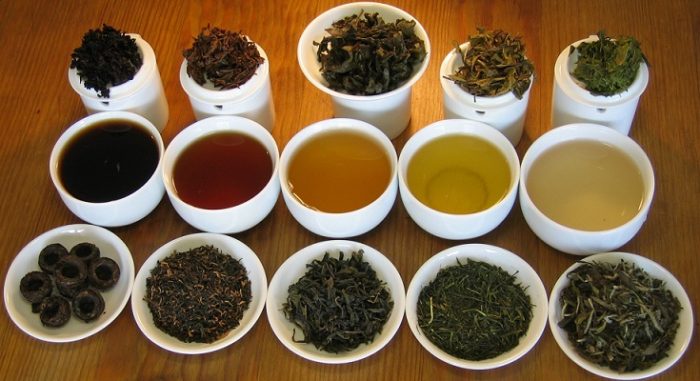There are concerns as the United States Food and Drug Administration (FDA), last week, authorised the marketing of IQOS, Philip Morris International’s (PMI) electrically heated tobacco system, as a modified risk tobacco product (MRTP). In doing so, the agency found that an IQOS exposure modification order is appropriate to promote the public health.
The FDA authorised the marketing of IQOS with the following information: “The IQOS System heats tobacco but does not burn it. This significantly reduces the production of harmful and potentially harmful chemicals.”
Scientific studies have shown that switching completely from conventional cigarettes to the IQOS system reduces the body’s exposure to harmful or potentially harmful chemicals.
The agency concluded that the available scientific evidence demonstrates that IQOS is expected to benefit the health of the population as a whole, taking into account both users of tobacco products and persons who do not currently use tobacco products
The FDA’s decision further builds on the emerging independent international scientific consensus that IQOS is a better choice than continuing to smoke, and follows the FDA’s April 2019 decision authorizing the commercialization of IQOS in the U.S.
The FDA’s decision provides an important example of how governments and public health organizations can regulate smoke-free alternatives to differentiate them from cigarettes in order to protect and promote the public health
This decision follows a review of the extensive scientific evidence package PMI submitted to the FDA in December 2016 to support its MRTP applications.
Commenting on the FDA’s announcement, PMI’s Chief Executive Officer, André Calantzopoulos, said: “The FDA’s decision is a historic public health milestone. Many of the tens of millions of American men and women who smoke today will quit—but many won’t. Today’s decision makes it possible to inform these adults that switching completely to IQOS is a better choice than continuing to smoke. FDA determined that scientific studies show that switching completely from conventional cigarettes to IQOS reduces exposure to harmful or potentially harmful chemicals.
“IQOS is a fundamentally different product than combustible cigarettes and must be regulated differently, as the FDA has recognized. Now—more than ever—there is an urgent need for a fundamentally different conversation on a cooperative approach to achieve a smoke-free future. The FDA’s decision provides an important example of how governments and public health organizations can regulate smoke-free alternatives to differentiate them from cigarettes in order to promote the public health…”
Meanwhile, a new Access Initiative for Quitting Tobacco aims to help the world’s 1.3 billion tobacco users quit. Stopping smoking is more important than ever as evidence reveals that smokers are more likely than non-smokers to have severe outcomes from COVID-19.
The project gives people free access to nicotine replacement therapy and to Florence, a digital health worker, based on artificial intelligence that dispels myths around COVID-19 and tobacco and helps people develop a personalized plan to quit tobacco.
It is being led by the World Health Organization (WHO), together with the UN Interagency Task Force on Non-communicable Diseases, PATH and the Coalition for Access to NCD Medicines and Products, with support from the private sector.
The Secretariat of the WHO FCTC, salutes this initiative. The Head of the Convention Secretariat commented, “This will contribute to Parties’ implementation of Article 14 of the Convention, regarding measures concerning tobacco dependence and cessation. And, as previously said: there has never been a more appropriate time to support people in their efforts to quit tobacco use.”
Director of Health Promotion, Dr. Ruediger Krech, said that, “We welcome the support of pharmaceutical and tech companies to improve people’s health and save lives during COVID-19. The partnership highlights what we can achieve when we work together both to end the pandemic and, moving forward, to build back better.”
WHO received its first-ever donation of nicotine replacement therapies for the project from Johnson & Johnson Consumer Health. The manufacturer has donated 37,800 nicotine patches to help 5,400 people in Jordan quit smoking. These efforts will help WHO respond to the ongoing pandemic and improve health outcomes.
Florence was created with technology developed by San Francisco and New Zealand based Digital People Company, Soul Machines, with support from Amazon Web Services and Google Cloud.
Jordan, which has some of the highest tobacco use rates in the world, will be the first pilot country with additional companies and countries to join in discussion. HRH Princess Dina Mired of Jordan, President for the International Union of Cancer Control said, “I am pleased that Jordan is part of this initiative, which will help advocate for tobacco control and support civil society organizations in their continued efforts for a healthier smoke-free future for Jordan.”
Just last week the Government of Jordan adopted a ban on smoking and vaping indoors in public places. The link between smoking and COVID-19 make it essential for governments to pass comprehensive tobacco control laws that will protect the health of their people during this pandemic and beyond.
Although around 60 per cent of tobacco users worldwide say they want to quit, only 30 per cent of them have access to the tools that can help them do so The Access Initiative for Quitting Tobacco is designed to deliver tobacco cessation services that will help people overcome both physical and mental addictions to tobacco.




